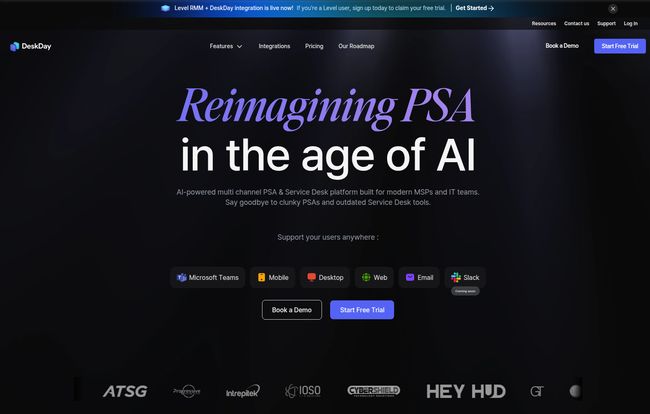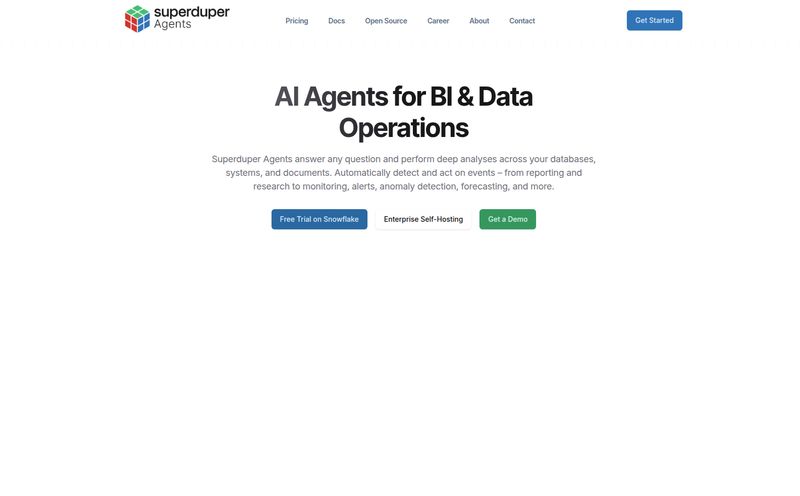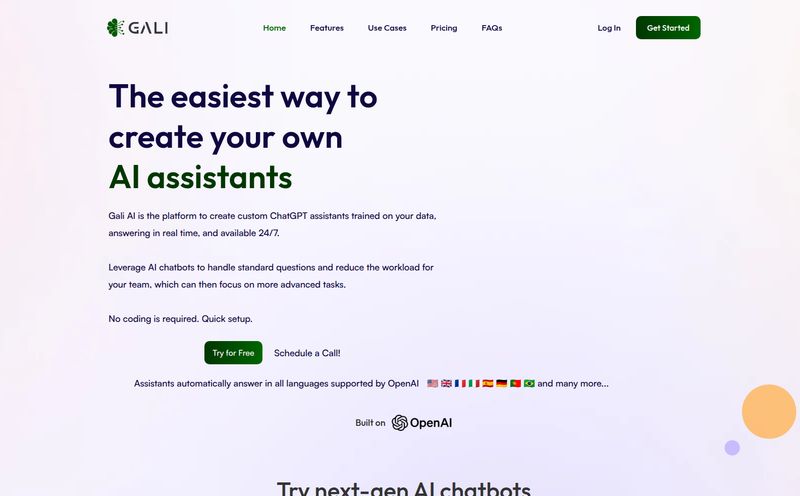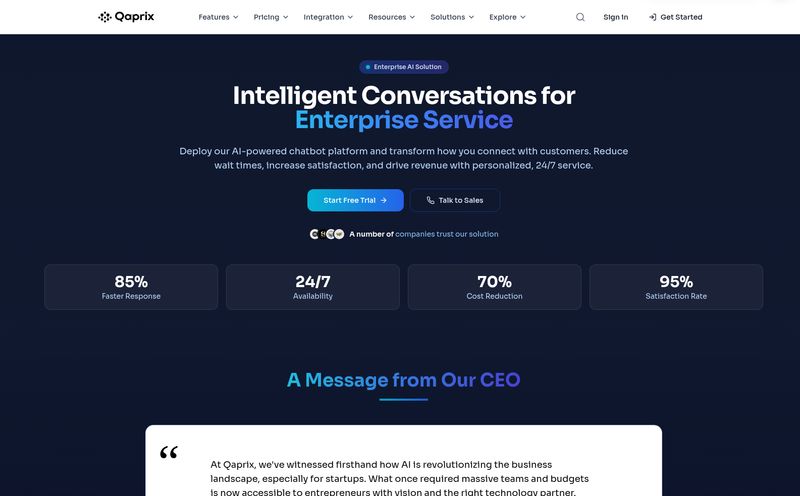If you've been in the Managed Service Provider (MSP) game for more than a few years, you've probably developed a… complicated relationship with your Professional Services Automation (PSA) tool. I know I have. They’re the backbone of our operations, but man, can they feel like a relic from a bygone era. Clunky interfaces, endless forms, and a ticketing process that feels more like filing a tax return than solving a problem.
I’ve lost count of the number of times I’ve stared at a ticket queue, feeling more like an air traffic controller in a blizzard than an IT professional. It's a system designed for process, not people. And that's a problem.
So when I stumbled upon DeskDay, with its slick dark-mode interface and bold claims of being a “Modern Intelligent PSA,” my curiosity was definitely piqued. Another buzzword-filled platform? Or something genuinely different? I decided to take a closer look.
So, What Exactly is DeskDay?
At its core, DeskDay is a unified IT support platform built specifically for the trials and tribulations of modern MSPs and MSSPs. It aims to bundle everything you need—ticketing, project management, billing, reporting—into one coherent package. Okay, so far, that sounds like most PSAs. But the difference, and it’s a big one, is in the how.
DeskDay throws out the old, rigid, form-based ticketing playbook. Instead, it rebuilds the entire service desk around a concept that's second nature to all of us now: chat.
The Game-Changer: A Conversational Service Desk
This is the feature that really got my attention. Instead of a client filling out a sterile web form to create a ticket, the process can start with a simple chat message. Think about the implications of that for a second. It immediately lowers the barrier for users to seek help and makes the whole interaction feel more human. It’s less “Please describe your issue in Box 7A” and more “Hey, my laptop is making a weird noise.”
I’ve always felt that the formal ticketing process can intimidate users, leading them to let small problems fester until they become big ones. A chat-based system feels faster, more immediate, and a lot less formal.

Visit DeskDay
And the integration with Microsoft Teams is just brilliant. Most businesses are already living inside Teams all day. Being able to raise, track, and collaborate on a ticket without ever leaving that environment? That’s not just a convenience; it’s a major workflow accelerator. It keeps communication where the work is already happening, which is a philosophy I can definitely get behind.
Beyond the Chat: A Full-Fledged Feature Set
A cool ticketing system is nice, but an MSP can't live on chat alone. You need the nuts and bolts to actually run the business. I was pleasantly surprised by the depth here.
Real Project Management for MSPs
This isn't just a glorified to-do list tacked on as an afterthought. DeskDay includes proper project management tools with Gantt charts, task dependencies, and project-specific billing. For an MSP that handles everything from simple user support to complex office migrations and server deployments, having this integrated directly into your PSA is huge. No more juggling a separate project management tool and trying to reconcile billing and time tracking. It’s all here.
Billing and Contracts Without the Headache
Ah, billing. The source of so much joy and so much pain. DeskDay seems to get this. It has built-in contract management and billing functionalities, which is standard fare. But the killer integration is with QuickBooks Online. This direct link between your service delivery (tracked time, projects) and your accounting is one of those quality-of-life improvements that can save you hours of administrative agony every single month.
A Focus on the Customer Experience
I love that DeskDay hasn't forgotten the other side of the equation: the customer. They offer a dedicated customer ticketing app, giving your clients a single, branded place to request support and check on their tickets. It’s a far more professional look than just telling them to “send an email to support@.” It also provides a portal for self-service and a way to push out announcements about outages or planned maintenance. It shows you’re proactive, not just reactive.
Let's Talk About the Price Tag
Alright, this is where a lot of great tools can fall flat. You get excited about the features, and then you see a price that would make a Fortune 500 CFO wince. I was bracing myself, but DeskDay’s pricing is refreshingly straightforward.
It’s a simple, flat rate: $49 per technician per month, when billed annually.
But here are the two most important sentences on their entire pricing page: “No contracts. No minimum seats.”
This is huge. For a startup MSP or a small team, not being locked into a long-term contract or forced to pay for five seats when you only need two is a massive advantage. It allows you to scale your costs directly with your growth. I honestly think this pricing model shows they understand the market they’re serving. It builds trust.
Here’s a quick rundown of what’s included in that price:
| Feature Category | What You Get |
|---|---|
| Service Desk | Chat-based Ticketing, Real-time Chat, Ticket Merging, SLA Management |
| Operations | Time Tracking, Timesheets, Scheduling, Project Management, Reporting |
| Customer Facing | Customer App, Customer Onboarding, Announcements, Self-Service |
| Integrations | RMM (N-central, N-sight, etc.), QuickBooks Online, MS Teams |
The Good, The Bad, and The In-Development
No tool is perfect, and it’s important to have a balanced view. From my analysis and some of the whispers in the MSP community, here’s my take.
The Good Stuff is Really Good. The chat-first approach is genuinely innovative for the PSA space. The clean UI, the strong integrations with tools we actually use (like Teams and QuickBooks), and the transparent pricing are all major wins.
Now, for the Potential Hurdles. Some might argue that at $49/tech, the price could feel a bit steep for a brand-new, one-person MSP just starting out. I see that point, but I’d counter that a tool this efficient probably pays for itself quickly in saved time and better client retention. It’s an investment in a better workflow from day one.
The platform also seems best suited right now for teams up to about 10 technicians. This isn't a hard limit, but it suggests their current focus is on the small to medium-sized MSP, not the massive enterprise player. For most MSPs, that’s perfectly fine. In fact, its a plus.
Finally, some features are still on the roadmap. Some companies try to hide this. DeskDay is open about it, which I respect. It shows they’re actively developing and listening. It means you’re buying into a platform that’s growing, not one that’s stagnant.
My Final Verdict: Is DeskDay the Future for Your MSP?
After digging in, I’m genuinely excited about DeskDay. It feels less like an old, clunky pickup truck you have to wrestle with and more like a modern electric vehicle—quiet, efficient, and intelligently designed around the driver (and the passenger!).
Who is DeskDay for? It's for the forward-thinking MSP who is tired of the old way of doing things. It's for the team that values speed, efficiency, and a great customer experience. It’s especially powerful for small to mid-sized MSPs who want an all-in-one platform that can grow with them without punitive contracts.
If you’re just starting your MSP or if you’re an established provider feeling the pain of your legacy PSA, I think you owe it to yourself to check DeskDay out. It might just be the breath of fresh air the entire industry has been needing.
Frequently Asked Questions
- How does DeskDay's pricing work?
- DeskDay uses a simple pricing model of $49 per technician per month, billed annually. The best part is that there are no long-term contracts and no minimum number of seats required.
- What makes DeskDay different from traditional PSAs?
- The main difference is its chat-first approach to ticketing. It prioritizes quick, conversational support through its platform and MS Teams integration, rather than relying on slow, formal ticket forms. This, combined with a modern UI and all-in-one feature set, sets it apart.
- What are the key integrations for DeskDay?
- DeskDay integrates with essential MSP tools, including popular RMMs like N-central and N-sight, accounting software like QuickBooks Online, and collaboration platforms like Microsoft Teams.
- Is there a mobile app for technicians?
- Yes, DeskDay offers a mobile app for technicians, allowing them to manage tickets, track time, and provide support while on the go.
- Is DeskDay a good fit for a very small or solo MSP?
- Absolutely. Because there are no minimum seat requirements, a one-person MSP can get started and use the full power of the platform without paying for unused licenses. It's designed to scale with your business.
- Can I cancel my subscription at any time?
- While the best pricing is for an annual plan, their philosophy is built on flexibility. The absence of rigid, multi-year contracts is a key selling point, so you're not locked in the way you might be with other vendors.
Conclusion
The world of IT support is moving fast, and the tools we use need to keep up. Sticking with a legacy PSA is like trying to run a modern business on dial-up internet—you can do it, but you're putting yourself at a serious disadvantage. DeskDay represents a significant step in the right direction, focusing on conversational support, smart integration, and a fair pricing model that respects the MSP journey. It’s a compelling option that feels built for today, not a decade ago.



